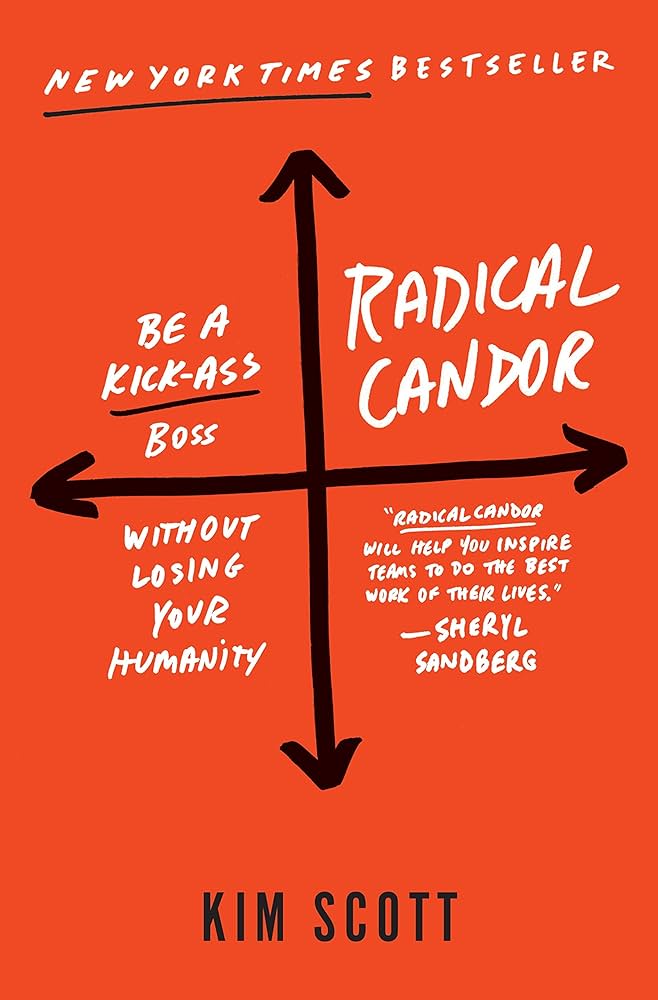No Rules Rules: Netflix and the Culture of Reinvention
RATING


In this book Reed Hastings, the CEO of Netflix, and Erin Meyer, bestselling author of The Culture Map and an influential business thinker, take a deep dive into the ideologies at the heart of Netflix corporate culture. Hastings starts the book with the acknowledgement that 2001 dotcom bubble collapse caused then struggling Netflix to fire a third of its workforce and reinvent itself — and thus, a new unique corporate cultural philosophy had emerged. In his desire to share his insights and not be labelled as biased, he reached out to Erin Meyer, a Professor at INSEAD and regular contributor to the Harvard Business Review. Meyer ended up conducting hundreds of interviews with current and past Netflix employees from around the globe absorbing stories of trial and error from the rise of Netflix and Hastings’s own career. This book gives insight into the fascinating philosophy behind the innovative and healthy work environment that Netflix has fostered.
Hastings’s created a unique set of new standards which became the underlying foundation of the core philosophy within Netflix’s corporate culture: valuing people over process, emphasizing innovation, and reducing control over employees. The book highlights how to create a healthy and innovative corporate culture, and Hastings describes it as a three-step process. The first and most crucial step is to build a team with high talent density and begin removing benign bureaucratic controls. The Second involves strengthening the talent density, increasing organizational candor, and relinquishing even more control. Finally, the third step is “maxing-up” talent density by implementing the Keeper Test, creating circles of feedback, and relinquishing most control. The Keeper Test is by far one of the most intriguing aspects of this culture as it takes an unorthodox approach to firing. The test is simple, managers need to ask themselves, “If a person on your team were to quit tomorrow would you attempt to change their mind?” If not, then you need to let them go, but on good terms by offering them a generous severance package. Then the hunt begins for somebody more talented and exceptional. The first nine chapters of this book cover this three-step approach to implementation. Chapter Ten takes a look at what happened when they began to transfer their corporate culture to the context of different national cultures.
Hastings and Meyer have produced a well written captivating piece. This book gives you an insightful intriguing story while providing a useful example of how corporate culture can be reimagined to catalyze innovation and improve the quality of life for employees. This book does a great job intertwining the story with the methodology and creates something useful while escaping the dullness which plagues similar corporate culture books.
While this book makes the Netflix philosophy seem unique and groundbreaking, it really isn’t, at least not in 2020. Over the last two decades most high-tech innovative companies have figured out the same or similar philosophies, and they all work more or less in similar ways with some being more successful at implementation. A good book, just not as unique as it makes itself out to be.
The New York Times bestseller
Shortlisted for the 2020 Financial Times & McKinsey Business Book of the Year
Netflix cofounder Reed Hastings reveals for the first time the unorthodox culture behind one of the world’s most innovative, imaginative, and successful companies
There has never before been a company like Netflix. It has led nothing short of a revolution in the entertainment industries, generating billions of dollars in annual revenue while capturing the imaginations of hundreds of millions of people in over 190 countries. But to reach these great heights, Netflix, which launched in 1998 as an online DVD rental service, has had to reinvent itself over and over again. This type of unprecedented flexibility would have been impossible without the counterintuitive and radical management principles that cofounder Reed Hastings established from the very beginning. Hastings rejected the conventional wisdom under which other companies operate and defied tradition to instead build a culture focused on freedom and responsibility, one that has allowed Netflix to adapt and innovate as the needs of its members and the world have simultaneously transformed.
Hastings set new standards, valuing people over process, emphasizing innovation over efficiency, and giving employees context, not controls. At Netflix, there are no vacation or expense policies. At Netflix, adequate performance gets a generous severance, and hard work is irrelevant. At Netflix, you don’t try to please your boss, you give candid feedback instead. At Netflix, employees don’t need approval, and the company pays top of market. When Hastings and his team first devised these unorthodox principles, the implications were unknown and untested. But in just a short period, their methods led to unparalleled speed and boldness, as Netflix quickly became one of the most loved brands in the world.
Here for the first time, Hastings and Erin Meyer, bestselling author of The Culture Map and one of the world’s most influential business thinkers, dive deep into the controversial ideologies at the heart of the Netflix psyche, which have generated results that are the envy of the business world. Drawing on hundreds of interviews with current and past Netflix employees from around the globe and never-before-told stories of trial and error from Hastings’s own career, No Rules Rules is the fascinating and untold account of the philosophy behind one of the world’s most innovative, imaginative, and successful companies.
This book is an interesting read, through and through. If the field of corporate culture and management remotely interests you, this is a great book to read and have under your thumb. It gives you elements of research, tactical application, and employee quality control.
See content on this topic
Understand the value of a customer-oriented analytics package and how behavioral scenarios can be used to improve profitability through influencing behavior and usage.
To understand the principles of game dynamics and learn how to effectively use the elements of gamification in business: to involve customers, employees and contractors in the process.
Understanding branding and communications from the standpoint of emotional engagement and building relevant and meaningful dialogue with customers.
This course covers a complete view of customer touch points (both physical and virtual) and a unique model for standardizing and managing customer contact models across channels including approaches for customer feedback, quality management, and migration.
Experiential Branding & Communications – Improving Brand Integration Through Emotional Engagement.
This course covers a complete view of customer touch points (both physical and virtual) and a unique model for standardizing and managing customer contact models across channels.
Sales training for front line along with basic development and coaching principles for line management.
Understanding how leaders must evolve with relation to the evolution of business models, new management models, and the significant changes to the workforce with Digital Natives now making up more than 50% of the workforce globally.
Understand the theory and mechanics of developing and managing a customer-centric and experience-driven corporate culture that is consistent and stable and includes elements of Employee Experience (EX) and Employee Relationship Management (ERM).
Understanding the evolution of leadership styles, management models, organizational structures, performance measurement and guiding change in the evolution of business models from product-centric to customer-centric and even relationship-centric.
Understand how to manage both internal and external digital transformation while considering the landscape for digital business models and the effect on traditional business models. Understanding organizational readiness for transformation and the role of corporate culture in managing transformations.
The changes in consumer behavior, employee behavior, and the evolution of business models in the digital age cause significant difficulties and imperatives for leaders who must develop new skills and evolve their leadership styles to be effective in this fast changing, challenging, and competitive environment.




 Copy Link
Copy Link
 E-mail
E-mail
 LinkedIn
LinkedIn
 Facebook
Facebook
 Telegram
Telegram
 WhatsApp
WhatsApp



















 Go Back
Go Back
Leave a Reply
You must be logged in to post a comment.